Table of contents
Key Takeaways
Do you feel restless and on edge? Do you live with a gnawing sense of worry or dread? Do you experience irritability, headache, body pain, stomach ache, brain fog, or insomnia?
These signs and symptoms can point to anxiety.
Anxiety disorders are the leading cause of mental illness. In America, almost one in five adults — that’s a staggering 40 million people — are affected. In Canada, there’s a 3.7% chance of experiencing this condition throughout your life.
But, and it’s a big but, these stats are worse for women with Polycystic Ovary Syndrome or PCOS.
A study published in the journal, Psychological Medicine, compared the rates of mental illness — including anxiety — in women with PCOS, and those without. The authors found that women with PCOS experience greater amounts of anxiety and perceived stress. For those of you who love stats, the rates were 50% in PCOS compared to 39.2% without. That’s a massive difference!
Research suggests that menstrual abnormalities are the strongest predictor, and body hair plays a role.
This should make screening for anxiety a staple test for women with Polycystic Ovary Syndrome. But, alas, it’s not. So, if you suspect you may have this mental illness, please seek professional advice. Anxiety is known to strip quality of life. But, as this condition enters remission, well-being increases.
This brings us to a key question. How can you calm your anxiety to feel better soon?
4 evidence-based ways to calm PCOS-related anxiety
There are a range of approaches that can help reduce PCOS-related anxiety. Here are our top four…
Consider cognitive behavioral therapy
Cognitive behavioral therapy, or CBT, is a psychological intervention that involves a rethink. This form of treatment centers on the revolution of beliefs, thoughts, feelings, and behaviors. The cycle that takes place in your mind. In doing so, it sheds light on unconstructive patterns.
Once identified, the truth can be investigated. We can see if what we believe about a situation is, in fact, accurate. This clarity and insight allows us to form more appropriate beliefs and thoughts, and “grow” a healthier, clearer mindset.
While this sounds simple, a period of treatment is required. That’s because the brain needs repetition to promote change; time to rewire its default thought processes.
The great news is that CBT is considered the gold standard for treating mental illness. It’s natural, safe, effective, and often more efficient than old-school, long-term therapy.
Fall in love with movement
Do you exercise regularly? If not, it’s time. For a multitude of reasons.
Many women with PCOS have a condition called insulin resistance. This drives signs and symptoms like elevated blood sugar, fatigue, high blood pressure, sleep apnea, weight gain, and irregular menstrual cycles, including absent ovulation.
Insulin resistance can also alter neurotransmitter levels in the brain, including an increase in clearance of “the happy hormone” dopamine. This may trigger anxiousness, poor mood and yes, contribute to an anxiety disorder.
So, exercise can have a “one stone, three birds” effect. Moving regularly improves insulin sensitivity, PCOS symptoms and quality of life, and anxiety.
A combination of high intensity, resistance training, and aerobic exercise is perfect. So, hit the pavement, work out at the gym, practice Yoga, or find alternatives that you love.
Practice deep breathing
What if you knew your breath was a powerful gateway to relaxation?
Yes, inhalation brings in oxygen and exhalation allows carbon dioxide to exit. But breathing is also intimately linked with the stress response. Short shallow breaths scream “stress!” These are the type that is experienced in anxiety. Long, deep breaths whisper relax. This means we can consciously harness the breath to switch to a calmer state.
To enter a deep breathing state, follow these simple instructions:
— Find a comfortable position that allows you to lengthen your spine
— Breath in deeply through your nose, allowing your chest to rise and your belly to expand
— Breath out slowly through your mouth, letting your stress exit with it
Continue this practice for five minutes or more. With each breath, permit your body to relax, your mind to rest, and your anxiety to dissipate.
Prioritize sound sleep
Do you sleep soundly and wake feeling refreshed?
If not, a lack of quality slumber could be contributing to your anxiety. As a study published in the journal, Frontiers in Psychiatry, noted, “Poor sleep has been one of the consistent predictors of increased anxiety levels…”
So, how can you improve the quality of your sleep?
— Practice the deep breathing technique mentioned above before bedtime
— Sip Chamomile tea
— Keep a worry journal to jot down any concerns that pop into your mind before you close your eyes, or during the night. Knowing they will be remembered can really help
— Choose a comfortable, supportive mattress and pillow
— Ensure your bedroom is dark, quiet, and slightly cool
— Set a regular wake time
If you’d like information about the effects of PCOS on slumber, read our article, Fatigued? How PCOS Might Be Affecting Your Sleep.
The PCOS and anxiety takeaway
PCOS and anxiety commonly occur together. It’s not surprising. Symptoms like menstrual irregularities and unwanted hair growth can reduce self-confidence. Plus, insulin resistance — a hormonal condition present in many women with Polycystic Ovary Syndrome — is linked to anxiety.
But, with the right approaches and consistent application, PCOS and anxiety can improve. Life can become easier and more enjoyable!
Ovofolic is a combination of myo-inositol and d-chiro inositol with clinically proven benefits for managing PCOS symptoms including anxiety.



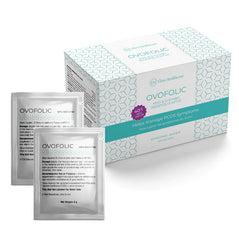

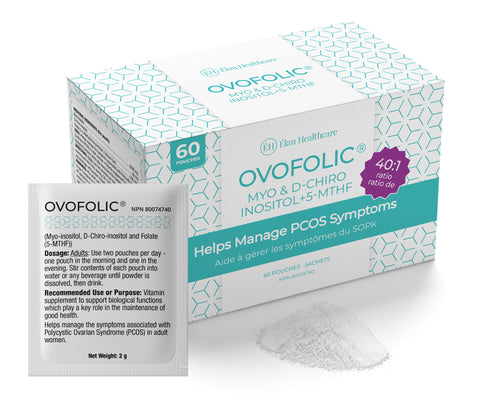
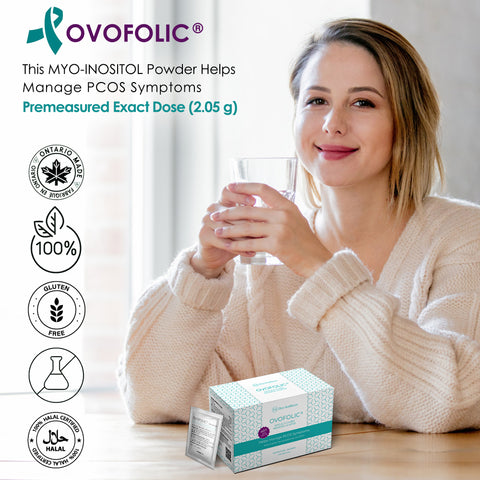
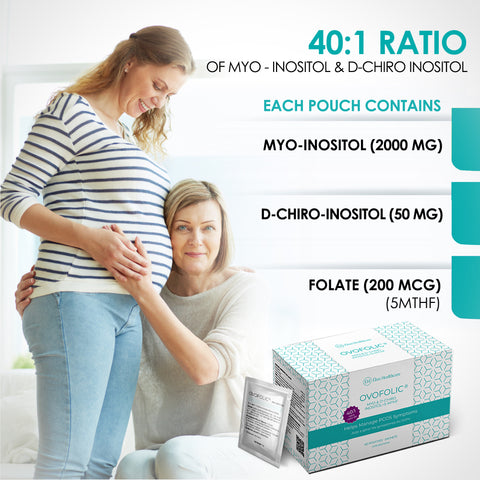

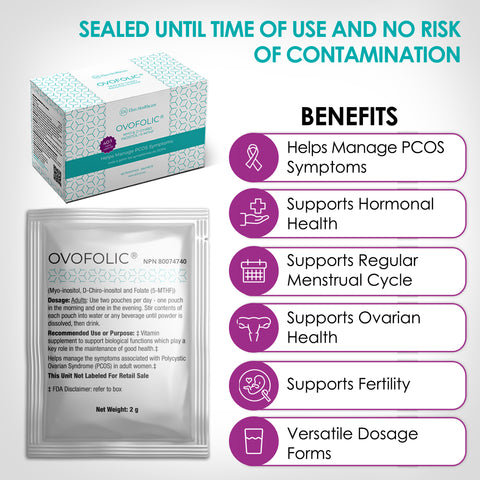
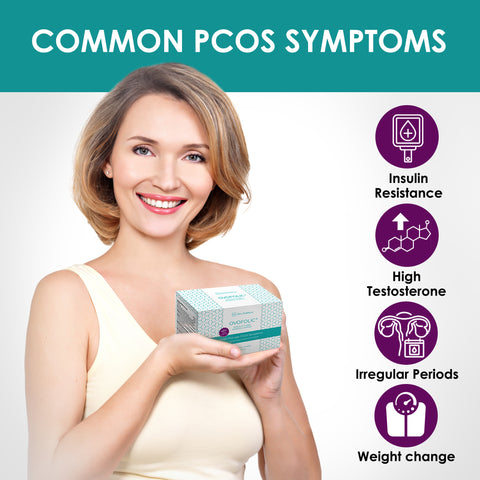
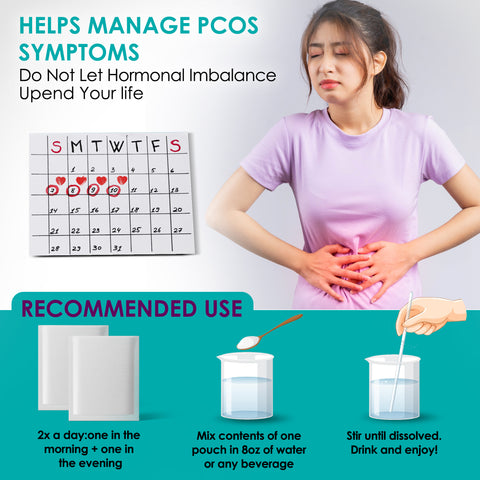
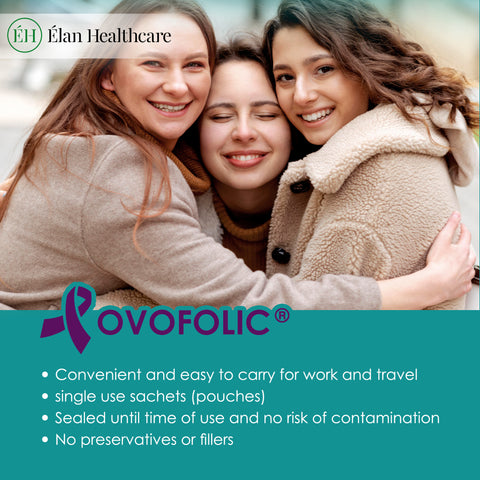
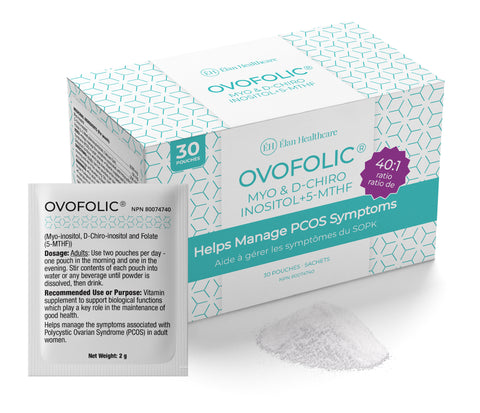









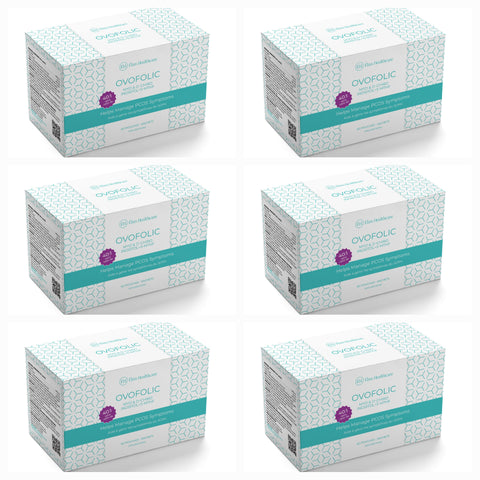
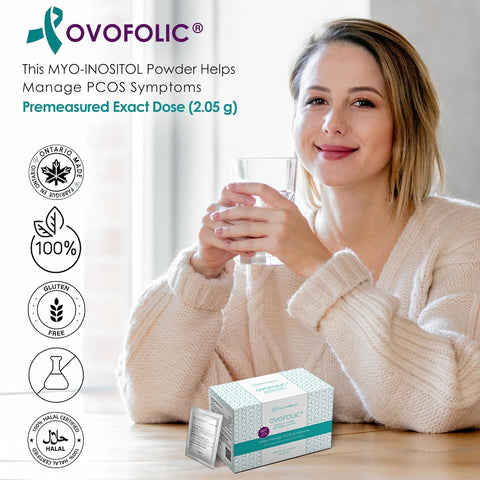
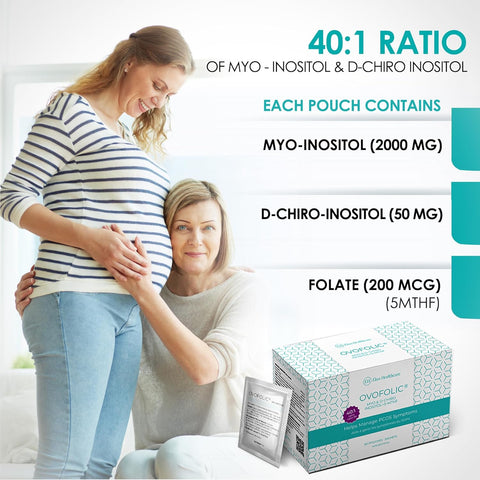

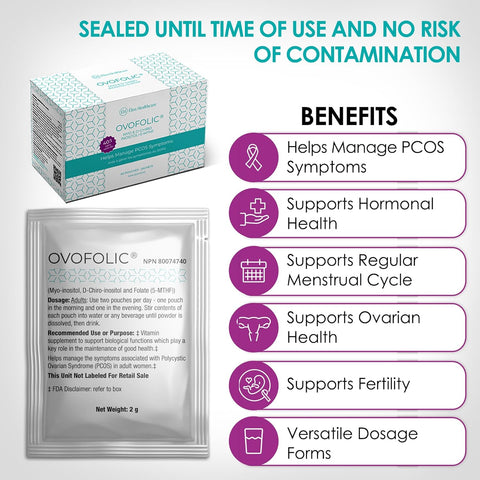
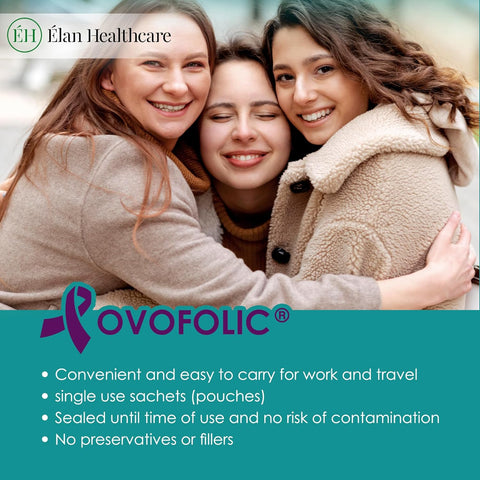
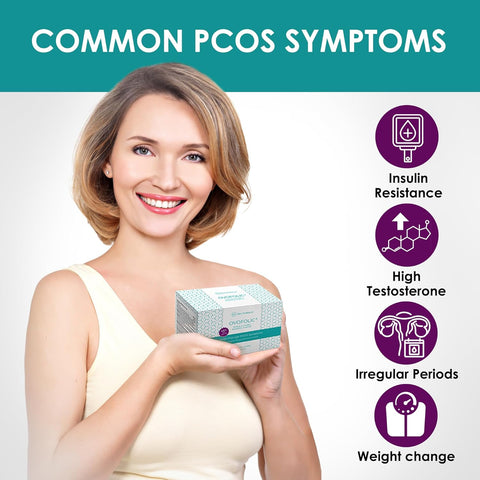
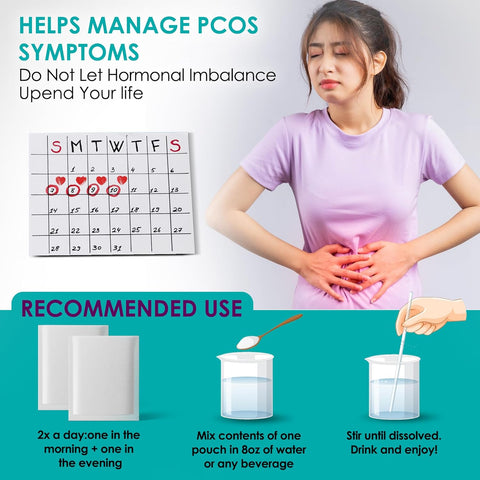


No comments yet.
There are no comments for this article. Be the first one to leave a message!
+ Open to leave a Comment